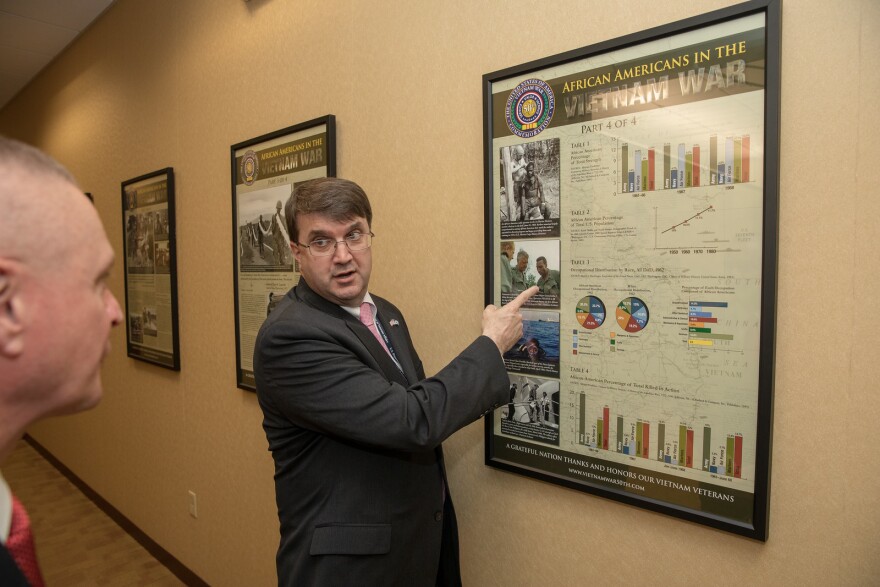Prescription painkillers have a notorious reputation in the veteran community. In response to an opioid scandal in 2016, Wisconsin's Tomah Veterans Affairs Medical Center has reformed the way they treat pain.
"We were in the middle of a crisis," says U.S. Secretary of Veterans Affairs (VA) Robert Wilkie, who recently visited the Tomah VA and Clement J. Zablocki VA Medical Center (Milwaukee VA Medical Center). "Traditionally [people use] pain medicine and go off on their own, into the shadows. Tomah broke the mold on how we think about that."
The VA has led the way in reducing opioid prescriptions — by approximately 51% — as a result of providing alternative pain management, Wilkie says. This includes substituting opioids with over-the-counter medicine and implementing therapy such as tai chi, yoga, and acupuncture.

Wilkie says that at the crux of topics like suicide, addiction, or homelessness, and the way they interconnect and affect the veteran community, is the need for a national discussion about mental health.
Though the need for this discussion is apparent, Wilkie believes there has at least been a cultural shift since his father was in Vietnam in 1970.
"We have a different society [now]," he says. "We have to concentrate on taking care of the people who volunteer. That means that the minute they walk into basic training, they are told at that stage [and onward]: 'If you see something in your buddy, say something. If you feel anxiety, if you feel depressed, you need to tell somebody.' "
LISTEN: Wilkie Outlines Cultural Changes At The Department Of Veterans Affairs
Though some parts of the military don't completely accept that, he says, cultural change takes time and it has to start somewhere.
Within the VA, a conversation on mental health is being implemented through services and education. "We are [beginning to] educate troops when they're in training and their military career in a way that would've been unthinkable in my father's day," Wilkie says.

This, Wilkie says, translates to allocating budget money to mental health services — Wilkie proposed $9.5 billion — and playing to the strength of communication within the VA community. It also means expanding things like telehealth, so health services can reach remote parts of the country.
Telehealth and urgent care options for veterans were recently expanded under the MISSION Act.
"This gives you the option, if we can't provide you with what you need, to go through our list of community care providers to pick one that fits your needs," he says, and notes that their statistics show it's being used for urgent care. "We think it's important because it keeps people out of emergency rooms."
The MISSION Act has taken off "without a hitch," Wilkie says, but that doesn't mean there aren't challenges ahead. The next task, through the MISSION Act, is to provide support and resources to family caregivers of Vietnam veterans.
"It's one of the last loops to close from the Vietnam era — that we finally do something to help those families who went through those times."



